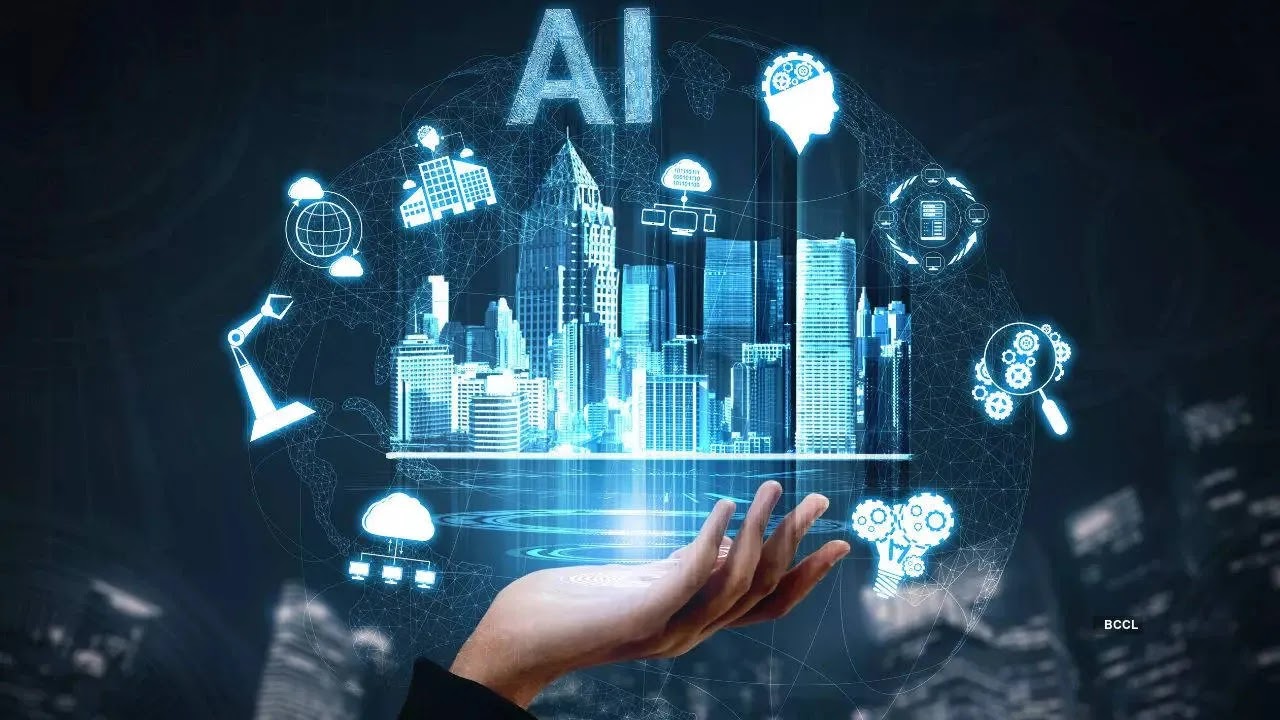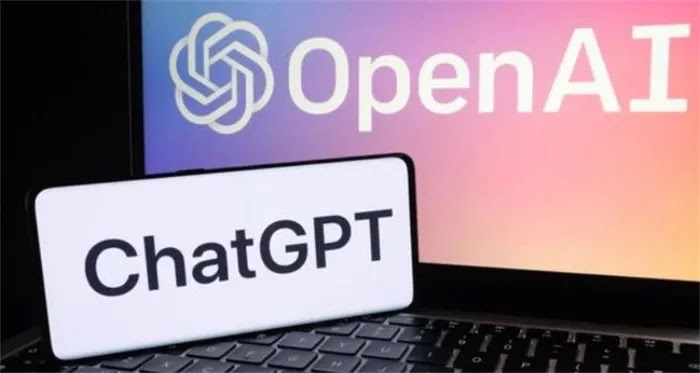Artificial Intelligence: Revolutionizing the Future
Artificial Intelligence: Revolutionizing the Future
Introduction
Artificial Intelligence (AI) has emerged as one of the most transformative technologies of the 21st century. With its ability to mimic human intelligence and perform complex tasks, AI has the potential to revolutionize various industries and reshape the way we live and work. From healthcare to finance, transportation to education, AI is making its mark across diverse sectors, driving innovation and unlocking new possibilities. In this article, we will explore the concept of artificial intelligence, its applications, benefits, and potential challenges.
Understanding Artificial Intelligence
Artificial Intelligence refers to the simulation of human intelligence in machines that are programmed to think and learn like humans. It encompasses a wide range of technologies, including machine learning, natural language processing, computer vision, and robotics. AI systems are designed to analyze vast amounts of data, recognize patterns, and make decisions or predictions based on the information available.
Applications of Artificial Intelligence
AI has found applications in numerous fields, transforming industries and enhancing productivity. Let's delve into some key areas where AI is making significant strides:
1. Healthcare: AI is revolutionizing healthcare by improving diagnosis, treatment, and patient care. Machine learning algorithms can analyze medical records, identify patterns, and assist in diagnosing diseases. AI-powered robotic surgery systems enable precise and minimally invasive procedures, reducing risks and recovery times. Moreover, AI algorithms can predict disease outbreaks, monitor vital signs, and personalize treatment plans.
2. Finance: AI is reshaping the financial sector by automating tasks, enhancing fraud detection, and providing personalized customer experiences. AI-powered chatbots and virtual assistants are improving customer service, while fraud detection algorithms can identify suspicious transactions in real-time. Additionally, AI algorithms analyze market data and predict trends, assisting in making informed investment decisions.
3. Transportation: The transportation industry is leveraging AI to optimize logistics, improve safety, and develop autonomous vehicles. AI algorithms optimize route planning, reducing fuel consumption and emissions. Self-driving cars equipped with AI technology can navigate roads, interpret traffic signs, and avoid collisions. Furthermore, AI enables the development of smart traffic management systems, enhancing efficiency and reducing congestion.
4. Education: AI has the potential to revolutionize education by providing personalized learning experiences and intelligent tutoring systems. AI-powered educational platforms can adapt to individual student needs, track progress, and recommend suitable resources. Natural language processing facilitates interactive learning through chatbots and virtual tutors. AI also enables automated grading, freeing up time for educators to focus on personalized instruction.
Benefits of Artificial Intelligence
The widespread adoption of AI brings forth numerous benefits:
1. Increased Efficiency: AI automates repetitive tasks, enabling businesses to streamline operations and improve productivity. This allows human workers to focus on more complex and creative endeavors.
2. Enhanced Decision-Making: AI systems process vast amounts of data and provide valuable insights, enabling more informed and data-driven decision-making. This is particularly beneficial in sectors such as finance and healthcare, where accurate and timely decisions are crucial.
3. Improved Safety: AI-powered systems enhance safety in various domains, such as autonomous vehicles that can reduce human errors and accidents. AI algorithms can also detect anomalies or potential risks in real-time, thereby preventing security breaches.
4. Personalization: AI enables personalized experiences by analyzing user preferences and behavior. From personalized recommendations on streaming platforms to tailored educational content, AI enhances user satisfaction and engagement.
Challenges and Ethical Considerations
While AI offers immense potential, it also presents challenges and ethical considerations:
1. Job Displacement: The rapid advancement of AI technology raises concerns about job displacement. As AI systems automate tasks traditionally performed by humans, there is a fear that jobs may become obsolete. However, it is important to note that AI also creates new job opportunities, such as AI system developers, data scientists, and AI ethicists. Additionally, AI can augment human capabilities, leading to a shift in job roles rather than complete job loss.
2. Bias and Fairness: AI algorithms are trained on vast amounts of data, which can inadvertently contain biases. These biases can result in discriminatory outcomes, such as biased hiring practices or unfair treatment in decision-making processes. Ensuring fairness and addressing biases in AI systems is crucial to prevent perpetuating societal inequalities.
3. Privacy and Security: AI systems often rely on vast amounts of data, including personal information. Safeguarding privacy and ensuring secure handling of data is of utmost importance. Striking a balance between utilizing data for AI advancements and protecting individual privacy rights is a key challenge.
4. Accountability and Transparency: As AI systems become more complex, understanding the decision-making process behind AI algorithms becomes challenging. Ensuring transparency and accountability in AI systems is vital, especially in critical areas like healthcare and autonomous vehicles. Developing methods to explain AI decisions and establishing regulatory frameworks are essential to build trust and mitigate risks.
Future Implications
The future implications of AI are both exciting and thought-provoking. As technology continues to advance, it is crucial to consider the following aspects:
1. Collaboration between Humans and AI: Rather than viewing AI as a replacement for humans, a collaborative approach that harnesses the strengths of both humans and AI is essential. AI can assist in decision-making, augment human capabilities, and improve efficiency, while humans provide critical thinking, creativity, and emotional intelligence.
2. Ethical AI Development: The development and deployment of AI systems should be guided by ethical principles. This includes transparency, fairness, accountability, and a focus on addressing biases and societal impact. Collaboration between technologists, policymakers, and ethicists is crucial to ensure responsible AI development.
3. Continuous Learning and Adaptation: AI systems should be designed to continuously learn and adapt to new information and changing circumstances. This flexibility ensures that AI remains relevant and effective in dynamic environments.
4. Empowering Workforce: As AI changes the nature of work, it is important to invest in reskilling and upskilling the workforce. This will enable individuals to adapt to new job roles and leverage the opportunities presented by AI technology.
5. Ethical Decision-Making: As AI systems become more sophisticated and autonomous, they may be required to make ethical decisions in various contexts. This raises complex questions about how AI should be programmed to handle moral dilemmas and prioritize ethical considerations. Developing frameworks and guidelines for ethical decision-making in AI is an ongoing challenge.
6. Social Impact: The widespread adoption of AI can have significant social implications. It may exacerbate existing inequalities if access to AI technologies and benefits are not distributed equitably. Additionally, AI can influence social behaviors, privacy norms, and human interaction patterns. It is crucial to consider the broader societal impact of AI and ensure that it contributes to a fair and inclusive society.
7. Regulation and Governance: The rapid advancement of AI technology has outpaced the development of regulatory frameworks. Establishing clear regulations and governance structures is essential to address concerns related to privacy, bias, safety, and accountability. Governments, organizations, and industry stakeholders need to collaborate to create effective policies that foster innovation while protecting the rights and well-being of individuals.
8. Superintelligence and Ethical Risks: Superintelligence refers to AI systems that surpass human intelligence in virtually every aspect. While this level of AI is still speculative, it raises concerns about the potential risks associated with highly advanced AI systems. Safeguarding against unintended consequences, ensuring alignment with human values, and minimizing the risks of superintelligence are topics that require careful consideration and research.
9. Environmental Impact: As AI systems become more prevalent, it is important to consider their environmental impact. The computational power required to train and run AI models can consume significant amounts of energy, contributing to carbon emissions and environmental degradation. Developing energy-efficient algorithms and exploring sustainable computing solutions can help mitigate the environmental footprint of AI technology.
10. Global Collaboration and Ethical Standards: AI is a global phenomenon that transcends national boundaries. Collaboration between countries, organizations, and researchers is crucial to establish ethical standards and guidelines for the development and deployment of AI. International cooperation can foster knowledge sharing, address ethical dilemmas, and ensure that AI benefits are distributed equitably across the globe.
11. Unintended Consequences and Unforeseen Risks: AI systems are complex and can exhibit behaviors that are difficult to predict or control. There is a risk of unintended consequences or unforeseen risks arising from the deployment of AI. It is important to conduct thorough risk assessments, continuously monitor AI systems, and have mechanisms in place to address and mitigate potential negative outcomes.
12. Human Understanding and Trust: As AI becomes more integrated into our lives, it is essential to maintain human understanding and trust in the technology. Ensuring transparency, explainability, and user-centric design can help build trust and enable individuals to understand and make informed decisions regarding AI systems. Open dialogue and education about AI can also contribute to fostering public understanding and acceptance.
13. Long-Term Implications: As AI continues to advance, it is important to consider its long-term implications. This includes the impact on employment, societal structures, individual well-being, and even the concept of human identity. Ethical and philosophical discussions surrounding the role of AI in society are necessary to shape its trajectory and ensure that it aligns with our values and aspirations as a civilization.
Frequently Asked Questions about Artificial Intelligence
Q: What is Artificial Intelligence (AI)?
A: Artificial Intelligence refers to the development of computer systems that can perform tasks that normally require human intelligence. These tasks can include speech recognition, decision-making, problem-solving, learning, and more.
Q: How does Artificial Intelligence work?
A: AI systems are built using algorithms and models that allow machines to process and analyze large amounts of data, recognize patterns, and make decisions based on that information. AI can be divided into two categories: Narrow AI, which is designed for specific tasks, and General AI, which aims to exhibit human-level intelligence across a wide range of tasks.
Q: What are some real-world applications of Artificial Intelligence?
A: AI is used in various industries and applications, including:
1. Healthcare: AI is used for medical imaging analysis, drug discovery, personalized medicine, and patient monitoring systems.
2. Finance: AI is employed for fraud detection, algorithmic trading, risk assessment, and customer service applications.
3. Transportation: AI powers autonomous vehicles, traffic management systems, and logistics optimization.
4. Education: AI is used for personalized learning, intelligent tutoring systems, and educational content creation.
5. Manufacturing: AI is employed in robotics, quality control, predictive maintenance, and supply chain management.
Q: What are the different types of AI?
A: There are three main types of AI:
1. Artificial Narrow Intelligence (ANI): Also known as Weak AI, ANI is designed to perform specific tasks and is limited to a narrow domain. Examples include voice assistants like Siri and Alexa.
2. Artificial General Intelligence (AGI): AGI refers to AI systems that possess human-level intelligence and can understand, learn, and apply knowledge across a wide range of tasks. AGI is still largely a theoretical concept and has not been fully realized.
3. Artificial Superintelligence (ASI): ASI refers to AI systems that surpass human intelligence and capabilities in virtually every aspect. ASI is purely hypothetical at this point and has not been achieved.
Q: What are the ethical concerns surrounding Artificial Intelligence?
A: There are several ethical concerns associated with AI, including:
1. Job displacement: AI automation may lead to job loss and require workforce retraining.
2. Bias and fairness: AI systems can inherit biases from the data they are trained on, leading to discriminatory outcomes.
3. Privacy and security: AI systems often rely on vast amounts of personal data, raising concerns about privacy and data breaches.
4. Autonomous weapons: The development of AI-powered weapons raises ethical questions about their use in warfare.
5. Accountability: Determining responsibility and liability when AI systems make errors or cause harm can be challenging.
Q: Can Artificial Intelligence replace humans?
A: While AI has the potential to automate certain tasks and improve efficiency, it is unlikely to fully replace humans in the foreseeable future. AI excels at specific tasks but lacks the general intelligence and cognitive abilities of humans. However, it may impact job roles and require humans to adapt their skills to work alongside AI systems.
Q: How can AI benefit society?
A: AI has the potential to bring numerous benefits to society, such as:
1. Improved healthcare: AI can assist in diagnosis, drug discovery, and personalized treatment plans.
2. Enhanced productivity: Automation and AI systems can streamline processes, increase efficiency, and reduce errors.
3. Smarter cities: AI can be used to optimize urban infrastructure, manage traffic flow, reduce energy consumption, and enhance public safety.
4. Personalized experiences: AI can provide personalized recommendations for products, services, and content based on individual preferences and behaviors.
5. Environmental sustainability: AI can help monitor and manage environmental conditions, predict natural disasters, and optimize resource allocation for more sustainable practices.
6. Accessibility: AI-powered technologies can improve accessibility for individuals with disabilities, enabling them to engage more fully in society.
7. Scientific advancements: AI can accelerate scientific research and discovery by analyzing vast amounts of data and identifying patterns and correlations that may not be apparent to humans.
Q: Is AI dangerous?
A: AI itself is not inherently dangerous, but like any technology, it can be misused or have unintended consequences. There are concerns about the ethical implications of AI, such as bias, privacy issues, and the potential for AI-powered weapons. It is crucial to develop and deploy AI systems responsibly, with proper safeguards and regulations in place.
Q: Can AI learn on its own?
A: Yes, AI systems can learn on their own through a process known as machine learning. Machine learning algorithms enable AI systems to analyze data, identify patterns, and improve their performance over time without explicit programming. This allows AI systems to adapt and make predictions or decisions based on new information.
Q: What is the future of Artificial Intelligence?
A: The future of AI holds great potential for advancements and transformative changes in various fields. Some areas of focus include:
1. Continued research on General AI: The development of AI systems that possess human-level intelligence across multiple domains.
2. Ethical and responsible AI: Addressing the ethical concerns and ensuring AI technologies are developed and used responsibly.
3. AI in healthcare: Further integration of AI in medical diagnostics, drug discovery, and personalized medicine.
4. AI and robotics: Advancements in robotics and automation, leading to more sophisticated and capable AI-powered robots.
5. AI and Internet of Things (IoT): AI systems integrated with IoT devices to create smart environments that can learn and adapt to users' needs.
Q: Can AI be creative?
A: AI has shown promising capabilities in generating creative outputs such as art, music, and writing. Through techniques such as deep learning and generative models, AI systems can analyze and learn from existing creative works to produce new and unique pieces. However, the extent to which AI can truly exhibit creativity comparable to human creativity is still a subject of debate.
Q: What are the challenges in developing AI?
A: Developing AI systems poses several challenges, including:
1. Data quality and quantity: AI models require large amounts of high-quality data for training, which can be difficult to obtain in some domains.
2. Bias in data and algorithms: AI systems can perpetuate biases present in the data they are trained on, leading to unfair or discriminatory outcomes.
3. Interpretability and transparency: Some AI models, such as deep neural networks, can be opaque, making it challenging to understand their decision-making process.
4. Robustness and security: AI systems can be vulnerable to adversarial attacks and may make errors or be manipulated in unintended ways.
5. Ethical considerations: Determining the ethical boundaries of AI and ensuring its responsible development and use is a complex task.
Q: Can AI have emotions or consciousness?
A: As of now, AI does not possess emotions or consciousness. AI systems are based on algorithms and mathematical models that process information and make decisions based on patterns and rules. Emotions and consciousness are complex aspects of human cognition that involve subjective experiences, self-awareness, and understanding of one's emotions. While AI can simulate certain aspects of emotions or consciousness, it does not possess them in the same way humans do.
Q: Can AI replace human creativity or intuition?
A: While AI can assist and augment human creativity and intuition, it is unlikely to replace them entirely. Human creativity is driven by complex cognitive processes, emotions, and experiences that are difficult to replicate artificially. AI can provide suggestions, generate novel ideas, or mimic creative outputs, but the depth and complexity of human creativity and intuition are still unparalleled.
Q: How can I learn more about AI?
A: To learn more about AI, you can:
1. Read books and research papers on the subject.
2. Take online courses or attend workshops specifically focused on AI.
3. Follow reputable AI publications and websites for the latest news and developments.
4. Join AI communities and forums to engage with experts and enthusiasts.
5. Experiment with programming and building your own AI models using available tools and frameworks.
6. Consider pursuing a degree or specialization in computer science, data science, or AI-related fields.
Conclusion:
Artificial Intelligence is an extraordinary technology that has the power to revolutionize our world. Its applications span various industries, enabling efficiency, innovation, and improved decision-making. However, as AI continues to advance, it is crucial to address the challenges and ethical considerations that come with it. By focusing on transparency, fairness, accountability, and responsible development, we can harness the potential of AI while mitigating risks. Collaboration between researchers, policymakers, industry leaders, and society as a whole is essential to ensure that AI benefits humanity and contributes to a sustainable and equitable future. With careful planning and ethical implementation, artificial intelligence can truly revolutionize our world for the better.
In conclusion, artificial intelligence is a groundbreaking technology with vast potential and transformative power across multiple sectors. However, its development and deployment come with significant challenges and ethical considerations. By addressing issues such as job displacement, bias, privacy, accountability, and environmental impact, we can harness the benefits of AI while minimizing risks. It is crucial to adopt a responsible and human-centric approach to AI development, involving collaboration, regulation, and ongoing ethical discussions. Only by doing so can we maximize the positive impact of artificial intelligence and shape a future where it enhances our lives, fosters equality, and upholds our shared values.







